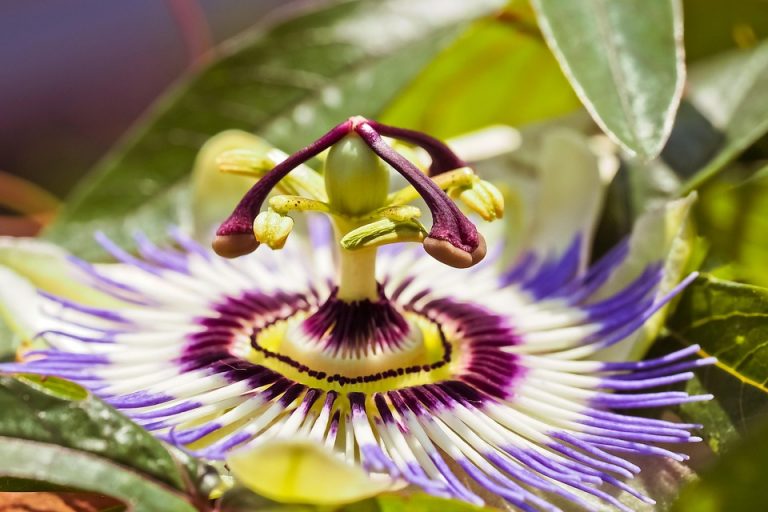Are you tired of tossing and turning as the clock ticks away? Herbs for deep sleep can be your ticket to a restful night. Sleep is not just a luxury; it’s a necessity. When you sleep well, you wake up rejuvenated, ready to conquer the day. But when sleep eludes you, everything feels off-kilter. Let’s dive into the world of herbal remedies that can help you reclaim your nights.
Contents
Understanding the Importance of Sleep
Sleep is your body’s natural way of healing and recharging. It’s during those precious hours of rest that your brain consolidates memories, your body repairs itself, and your mood stabilizes. Lack of sleep can lead to a cascade of problems: irritability, reduced cognitive function, and even compromised immune response.
In a society that often glorifies busyness, prioritizing sleep might feel counterintuitive. But trust me, investing in your sleep is one of the best decisions you can make for your overall health and well-being. The right herbs can help you drift into slumber and stay there, making every night a mini-vacation.
What Are Herbs for Deep Sleep?
Herbs for deep sleep are natural plants that have been used for centuries to promote relaxation and improve sleep quality. They work by calming your nervous system, reducing anxiety, and creating a sense of serenity. Whether you prefer a warm cup of tea or a soothing tincture, these herbs can offer you the sweet embrace of deep sleep.
Now, let’s explore seven powerful herbs that can lead you to that elusive restful night.
1. Chamomile
Chamomile is a classic for a reason. This gentle flower has calming properties that help reduce anxiety and promote sleep. Drinking chamomile tea before bed can signal your body that it’s time to wind down.
- Benefits: Reduces anxiety, promotes relaxation, and improves sleep quality.
- How to Use: Brew a cup of chamomile tea about 30 minutes before bedtime.
2. Valerian Root
Valerian root has been used for centuries as a natural remedy for insomnia. It works by increasing the levels of a neurotransmitter called GABA, which helps calm your mind and body.
- Benefits: Enhances sleep quality, reduces the time it takes to fall asleep.
- How to Use: Available in capsules, tinctures, or as a tea. Try it about an hour before bed.
3. Lavender
The soothing scent of lavender is more than just pleasant; it’s a powerful sleep aid. Research shows that inhaling lavender can improve sleep quality and reduce feelings of anxiety.
- Benefits: Promotes relaxation, reduces anxiety, and can enhance overall sleep quality.
- How to Use: Use lavender essential oil in a diffuser or sprinkle dried lavender flowers in your pillowcase.
4. Lemon Balm
Lemon balm is a member of the mint family and is known for its calming effects. It can help reduce stress and improve sleep quality, making it an excellent addition to your bedtime routine.
- Benefits: Reduces anxiety, improves sleep quality.
- How to Use: Brew it as a tea or take it in capsule form about an hour before bed.
5. Passionflower
Passionflower is another herb that has been shown to improve sleep quality. It’s believed to increase GABA levels in the brain, promoting relaxation and reducing anxiety.
- Benefits: Reduces insomnia symptoms, enhances overall sleep quality.
- How to Use: Often available in tincture or tea form. Consume about an hour before bedtime.
6. Ashwagandha
If stress is keeping you awake, ashwagandha might be the answer. This adaptogen helps your body manage stress and can improve sleep quality.
- Benefits: Reduces cortisol levels, promotes relaxation, and helps with anxiety.
- How to Use: Available in powder or capsule form. Mix it in warm milk or take it with water before bed.
7. Hops
Hops are not just for brewing beer; they’re also a powerful herb for sleep. Hops have sedative properties that can help you relax and drift off to sleep.
- Benefits: Enhances sleep quality, reduces anxiety.
- How to Use: Often found in herbal sleep blends or available as capsules. Take it an hour before bed.
How to Incorporate These Herbs into Your Routine
The beauty of these herbs is their versatility. You can enjoy them in teas, capsules, or tinctures. Here are some ideas to get you started:
- Herbal Tea Blends: Combine chamomile, lemon balm, and lavender for a soothing bedtime tea.
- Aromatherapy: Use essential oils in a diffuser or create a calming bedtime ritual.
- Herbal Supplements: If you prefer capsules, choose high-quality supplements from reputable brands.
Tips for a Better Night’s Sleep
In addition to using herbs, consider these practices to enhance your sleep quality:
- Create a Sleep Schedule: Go to bed and wake up at the same time every day.
- Limit Screen Time: Avoid screens at least an hour before bed.
- Create a Relaxing Environment: Keep your bedroom dark, cool, and quiet.
- Mindfulness and Meditation: Incorporate relaxation techniques into your nightly routine.
The Science Behind Herbal Remedies
While many people swear by these herbs, it’s essential to understand the science behind them. Research supports their use, showing significant improvements in sleep quality and anxiety reduction. For instance, a study published in the Journal of Clinical Psychopharmacology highlighted the effectiveness of valerian root in improving sleep quality and reducing insomnia symptoms.
Additionally, the calming properties of chamomile and lavender have been extensively studied, showing that they can indeed promote relaxation and improve sleep quality (National Center for Complementary and Integrative Health).
Bottom Line
Incorporating herbs for deep sleep into your nightly routine can transform your evenings from restless to restful. From chamomile to ashwagandha, these natural remedies can help you reconnect with the restorative power of sleep. Your body deserves this investment in health.
So tonight, why not brew a cup of chamomile or inhale some calming lavender? Embrace the herbs that nature provides, and you may just find the deep sleep you’ve been longing for.
FAQ
Q: How long does it take for these herbs to work?
A: Results can vary, but many people notice improvements within a few days to weeks of consistent use.
Q: Are there any side effects?
A: Most herbs are safe for most people, but it’s always best to consult with a healthcare provider, especially if you’re pregnant, nursing, or taking medications.
Q: Can I combine these herbs?
A: Yes! Many people find that combining herbs like chamomile and lavender works well for them. Just be mindful of dosages.
Take the first step towards better sleep tonight by trying one or more of these herbs. You deserve it!
Get Your FREE Natural Health Guide!
Subscribe now and receive our exclusive ebook packed with natural health tips, practical wellness advice, and easy lifestyle changes, delivered straight to your inbox.




